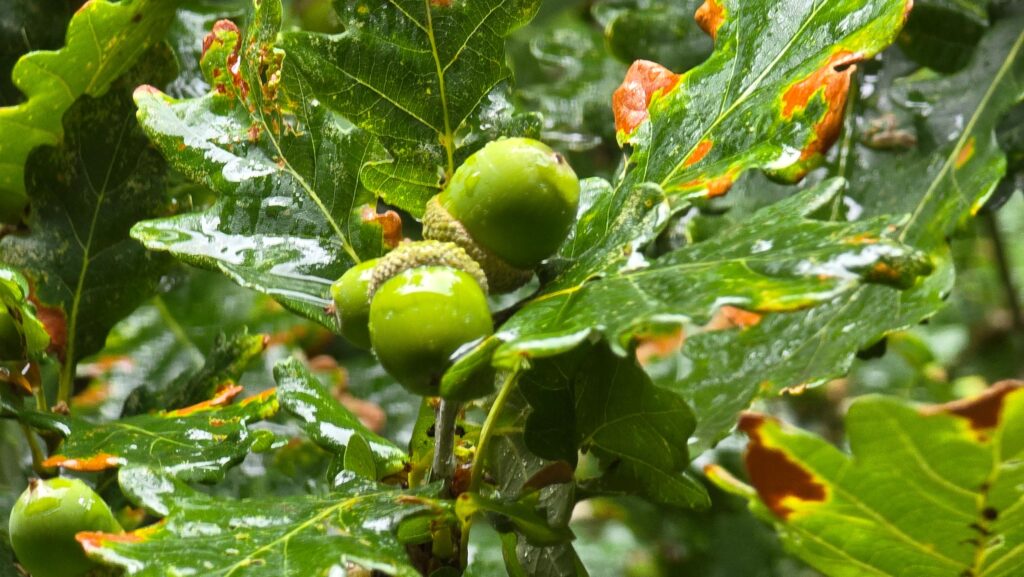Vet warns of acorn poisoning in ruminants
 © MAG/Anne Dunn
© MAG/Anne Dunn This year’s bumper crop of acorns could prove to be fatal for livestock, a Carmarthenshire vet has warned, urging farmers to be aware of the risks.
Acorns contain phenols and tannins that are toxic when ingested in sufficient quantities and there is no cure for poisoned animals. Green acorns are particularly high in toxicity.
Following recent storms and a “mast year” crop, many acorns have fallen to the ground, increasing the risk of cattle and sheep seeking them out.
See also: Vet warns of hemlock threat to cattle
“This is a particularly bad year for acorns, probably because of the dry summer we had.
“They are a great risk for youngstock and sheep, who get addicted to them,” said ProStock vet and director Dr Rhys Beynon-Thomas.
“There is also a higher risk as grass is in short supply in many places and livestock go looking for extra forage.
“There is no treatment for acorn poisoning, so if you have oak trees in your fields, avoid grazing these or try fencing them off,” he added.
The clinical signs of acorn poisoning include:
- Sudden death (although poisoning generally occurs over a period days)
- Constipation initially, followed by black, watery scour
- Depression and loss of appetite
- Straining to pass faeces and urine
- Death normally occurs within a week of eating the acorns.
Previous losses
North Wales beef and sheep farmer Olwen Ford, who farms 78ha at Llan Farm, Llanfrothen, has split the farm into 1/6 trees to 5/6 grazing and the majority of her trees are oak.
With only two areas of grazing land almost oak-free, Mrs Ford moved the herd as the acorns started to drop.
“I have lost animals in the past, often the younger ones, despite careful monitoring.
“If they are left near trees and they get the taste for acorns, they can become completely addicted to the point of breaking through fences to get the fix.
“The last yearling heifer I lost had 90% failure [liver and kidney] the blood test showed, and had to be immediately culled,” she said.
If you suspect acorn poisoning in your livestock, contact your vet immediately.
